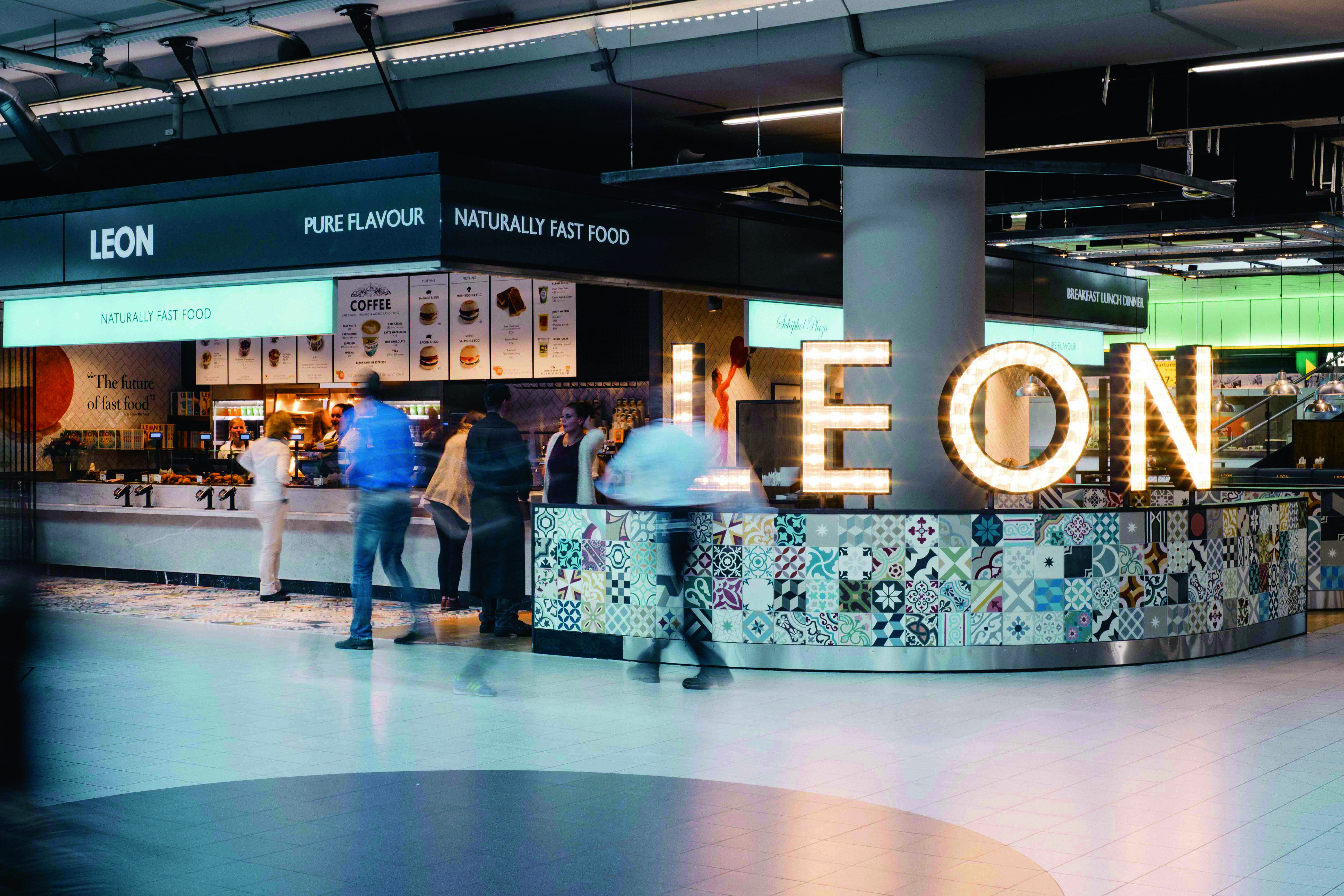
Why do you think now is the right time for Leon to expand into the US?
Now feels like a very good time to expand because we have a really strong foundation. We’ve gone through some teething over the years but we’ve got structure in what we do now.
This year we’ve also gone into a couple of new territories. We opened in Oslo, Norway a few weeks ago and we’ve got four new restaurants in the Netherlands. We’ve had our first test of trading internationally so it’s a very natural year for going to the US. In fairness it was planned two years ago as well, so why now? I think that was the question we probably asked ourselves two years ago.
Why have you chosen Washington DC as the location for the Leon US flagship store?
We looked at the US and heat mapped the whole country. We looked at everything from average household income and education levels to office densities and barriers of entry to cities like taxation and legislation. After that we filtered it down to three cities which were Washington DC, Boston and Chicago.
Ultimately DC won the competition but it could easily have been any of the other cities. We had to start somewhere, but when it came down to it we just really liked DC. It’s a nice place to live and it’s a nice place to work. We liked the fact that DC was on the right side of the country because it’s easy to commute back and forth to London, so I think that was a big advantage and ultimately there’s something about the culture in DC that gave us the greatest parallel to the home market.
Many people would consider Leon to be an archetypal British brand. What makes you think that it can succeed in the US?
As a brand we are very entrenched in the fast food space and we believe the home of fast food is America, so from a transfer point of view we don’t talk about Leon being a British brand. It’s purely by chance that we started in London, where our founders live, but we’ve always seen the brand as global. We think there’s something really quite romantic about bringing fast food home with a wonderful menu.
What lessons have you learnt from previous expansions?
I think the biggest thing we’ve learnt is you can’t second-guess a new market and it’s very easy to make assumptions. We’ve got a great brand and what we’re determined to do in the US, as we’ve done in Oslo and the Netherlands, is launch as near as we possibly can to that brand. It’s going to look the same, taste the same and feel the same.
If you try and second guess what the local market want and its the wrong second guess you’re going to loose focus on the control sample. It’s inevitable that we’ll make a few mistakes and we’ll adjust for those but we’re going in with the mentality that we’re going to listen really hard and change really fast but start with what we know.
How much will you have to change the menu to fit different tastes and attitudes towards healthy food in the US?
Based on our tests in Oslo and the Netherlands we’re really quite excited that actually we haven’t had to do much to adapt the menu. So the first test has been a good test.
It’s quite hard to second-guess the answer without having a crystal ball but a good example is halloumi. The American market doesn’t necessarily understand what halloumi is, but it doesn’t mean they won’t like it. In the UK ten years ago people didn’t know what aioli was, so in our early years we called it aioli garlic sauce. So in the US we will call it the grilled halloumi cheese wrap. It’s just about the subtly of wording not changing the structure of the food. We have to be open-minded because this is an education journey for our customers as well as for us. If something’s not selling it doesn’t necessarily make it a bad product it just means we need to work harder in how we communicate it.
In terms of changes in the future I think we want to continue being ahead of food being good for you. In the UK we started a campaign two years ago with Dr Megan Rossi, about the benefits of gut health. Crazily, the gut controls 70% of your body’s immune system and how do you have a healthy gut? You control what you eat. That feels like a very logical path for us to follow, so we’re almost certainly launching that as one of our initial campaigns in the US and I think we always want to be striving to be part of an evolution in food knowledge and science around eating better.
In a nation considered to be the home of traditional fast food outlets who do you see as Leon’s major competitors?
That is an interesting question. Almost nobody. That sounds really arrogant so forgive me. But in our category of using the structure of fast food and doing it with quality ingredients in the system, we don’t think any one is competing heavily in that space on a global basis. So, we like to think we’re almost in a category ofone. But we ultimately compete with people who serve healthy food at reasonable price points.
When Leon first opened in the UK it was a trailblazer, giving a healthy face to fast food. Do you think you still have that advantage in the US?
We just had a menu launch in the UK last week and there’s still real excitement around the food. I would say we still are trailblazers and people who discover us tend to be very surprised that you can put good quality ingredients into the fast food system.
Today when we launched in Manchester it’s the same situation and I think it will be the same in DC. So I still think there’s still a strong opportunity to be leading in that space.
What demographic do you think Leon is appealing to in the US?
Leon seeks to provide good food for the most people. It really is about helping more people get access to quality food because the biggest crisis facing the world today is obesity.
But the reality is our brand is probably 5-10% more expensive than classic fast food and that’s a virtue of using best quality ingredients. We think this will change over time as we drive volume and our purchasing power improves. But, in order to create a successful first stage trial there’s a lot to be said for education levels being higher and people having a better awareness of good food, again paralleling the original market.
Where do you see Leon going next?
Within the next three years we don’t see any reason whyLeon can’t expand into DC, Maryland and Virginia. We envisage about 16-20 restaurants that can be trading and creating a tight culture in a small network location. Then we’ll be thinking about what our next city is to conquer after the three-year stage.
Beyond that we’d like to be trying to conquer the whole of the US, but I think it’s about one restaurant at a time. Every restaurant we open, we open it like it’s the only restaurant. We don’t want to fall into the trap of rolling out cookie cutter brands. At the moment it’s all about restaurant number one on L Street. In four months time it’s going to be all about restaurant number two in China Town, after that it’ll be all about restaurant number three.
Rosa Thomas

